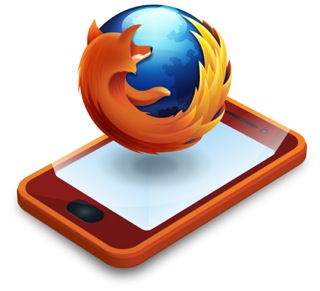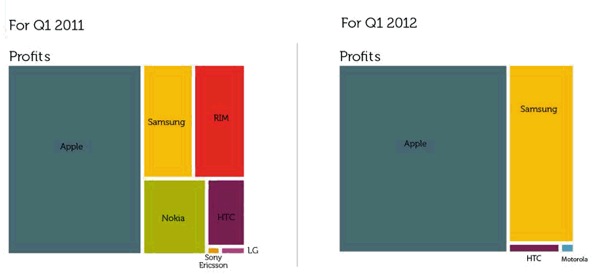If Facebook building a phone was too much too handle, wait ’till you hear this. Mozilla, an open-source, non-profit organization behind the Firefox browser, announced this morning that its “Boot to Gecko” mobile initiative has gained support from several big telecoms, including Sprint, Deutsche Telekom, Smart, Telecom Italia and Telenor, to name a few. Mozilla also said that going forward, its mobile project is to be called Firefox OS. So, when are Firefox phones due and should Apple be worried?
According to a post over at the Mozilla blog, carrier Vivo, a Telefónica property, will launch the first device to run the new mobile operating system early next year in Brazil. Chinese vendors ZTE and TCL (the maker of Alcatel handsets) also committed to making Firefox phones.
Just don’t expect high-end smartphones: Firefox devices will be powered by Qualcomm’s Snapdragon processors and target mid-to-low-end of the market and first-time smartphone buyers in emerging markets. Because of this, Google should be more concerned about Mozilla OS than Apple.
Unlike iOS, Android and even webOS for that matter, Firefox OS is an HTML5 project top to bottom so you shouldn’t expect snazzy, polished apps that we’ve grown accustomed to.
However, as chips that go into mobile devices become more powerful, Mozilla is betting that the performance issue wil sort itself out over time, making its HTML5 software appealing to carriers who are now more than ever looking to foster growth of alternative mobile platforms to counterbalance the iOS-Android duopoly.
Of course, Mozilla has a strong presence on the web and mobile, via their Firefox mobile app for Android and other platforms. On iOS, Mozilla is toying with a brand new minimalistic web browser code-named Junior.
As for HTML5, the organization is hoping to turn the promise of interoperability that HTML5 provides into its major selling point. Virtually all modern computing devices support this markup language, often used to structure and present content on the web. In theory, HTML5 web apps only need to be written once and are easily supported across fragmented mobile platforms.
But there’s a catch called performance.
Before Apple opened up the iPhone to third-parties with the App Store in the summer of 2008, the company had been trying to persuade developers to write web apps, but to no avail – web apps were slow, sluggish and nearly as attractive as their native counterparts.
This is the reality of the smartphone game today.
Carriers expect Microsoft’s Windows Phone to become a viable third platform and I can easily envision them in their wet dreams supporting another open, non-curated platform such as Firefox OS, as it bears the promise of endless customization.
But it ain’t just junkware carriers may be hoping to put on Firefox OS devices. In my personal opinion, carriers are in the panic mode, exploring whatever options are on the table in order to wrestle some of the control of mobile business back from Apple and Google.
Good luck with that, I say.
What say you?
Will Mozilla successfully boot Firefox OS or will it fail spectacularly like Palm’s (otherwise awesome) webOS?

